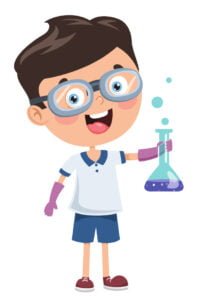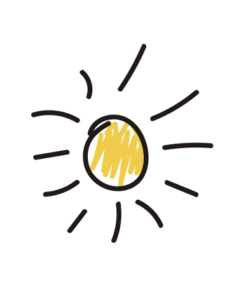The book “Surely You’re Joking, Mr. Feynman!” is a wonderful collection of anecdotes, and a delightful read for anyone interested in the anything-but-normal life of the famous physicist, Richard Feynman.
One of the many things we here at RLG love about this memoir are the stories and descriptions of his audacious childhood. The biography “Genius: the Life and Science of Richard Feynman” (James Gleick) also gives an account of his Feynman’s childhood.
Feynman became not just an accomplished physicist, a key part of the Manhattan project, a Noble prize winner, and a notable teacher, but he also collected (and liked to share) the stories and anecdotes of his interesting and eclectic life. His teaching and lectures are famous for making physics accessible to all sorts of people. He had a true joy and passion for physics, and sharing what he knew with others in language they could understand. His lectures are available here.
Early Life
But before all that, Feynman was just another kid growing up in Far Rockaway, New York. In many ways he was typical…in other ways he wasn’t.
In stories recorded in “Surely You’re Joking Mr. Feynman,” the physicist recalls how when he was eleven years old, he built a lamp bank with sockets, switches, fuses, and light bulbs. He also described his love of radios, and his early ability to diagnose problems and fix them. Word got around the neighborhood and he soon became a junior fix-it man that would go around fixing radios for adults during the Depression. You can feel the joy in Feynman’s re-telling as he describes these early forays into science and experimentation.
There was a naturally deep and innate curiosity to Feynman, even at a young age. He wanted to know about the physical world. But there are many things his parents did that seemed to foster and encourage this curiosity. Despite being middle (even lower middle) class, the Feynman family was lucky to live in a large house left to the familly by his grandfather. Feynman seemed to benefit from having room to experiment, both from a physical space standpoint as well as from a parental permission perspective (also please see our article on Taylor Wilson).
Parenting Style of Feynman’s Parents
In addition to nurturing curiosity and fostering their son’s interest in repairing radios, Feynman’s parents seemed to do a number of things that helped their precocious, budding scientist develop his gifts in science:
- According to the biographer James Gleick, Feynman’s father Melville Feynman was interested in science and wanted to transfer his knowledge and excitement to his son. When Richard was a baby, Melville arranged the tiles in his nursery in different patterns of blue and white, hoping that his newborn son would start to pick up on the idea of patterns (as a basis for math and science).
- Melville would take his son on walks, pointing out things in the natural world such as worms, ants, and birds, and explain their behavior in nature. He would emphasize to young Richard that the naming conventions and scientific jargon that so many seemed to get caught up in was much less important than observing and truly understanding what was going on in the natural world.
- Trips to museums were common, and Melville would do his best to explain things in terms and scales a child could understand. For instance, in trips to the Museum of Natural Science in Manhattan, Melville would explain the size of dinosaurs in relation to their own house in Far Rockaway.
- Melville purchased a full set of Encyclopedia Britannica for the household, which Richard devoured and treasured.
- When sports proved to not be a strong suit for Feynman, he got to use his competitive spirit by joining the algebra team in high school. Five students from his high school would travel around to competitions. Feynman’s parents allowed and encouraged this. It was at these competitions that Feynman learned to do algebra quickly by “seeing” answers as others tried to feverishly calculate and work their way through problems. Feynman would work on this ability to see ways to solve the problems, even as the teacher was still writing them on the board. This came in very handy in college and later in life. This took practice though, and repetition, almost like a weight lifter training and doing reps in the gym.
- And sometimes it was about what Richard’s parents didn’t do. They didn’t step in at every instance and tamp down his experiments or enthusiasm when things went a little unexpectedly. Feynman’s parents seemed to inherently know that kids are meant to be explorers, meant to discover things on their own. If parents tamp down their enthusiasm at every little mess or mishap, intentionally or not, they may be unintentionally killing the best parts of their creativity. The kind that might one day develop and blossom into something that might just change the world.
In “Genius: the Life and Science of Richard Feynman,” Gleick points out that Feynman’s father Melville provided the gift of “knowledge and seriousness,” while his mother Lucille gave the gift of “love and storytelling.” Feynman seemed to put both of these influences to great use in his scientific career as a Nobel prize winning physicist and a renowned teacher.
Conclusion
Perhaps the approach and attitude of Feynman’s parents towards their precocious and always experimenting son can be summed up in the words of his mother, Lucille. Whenever a guest to the house would ask how she could put up with the occasional mishaps, messes, and loud noises caused by her son’s experimenting and tinkering, she would simply say: “It’s worth it.”






